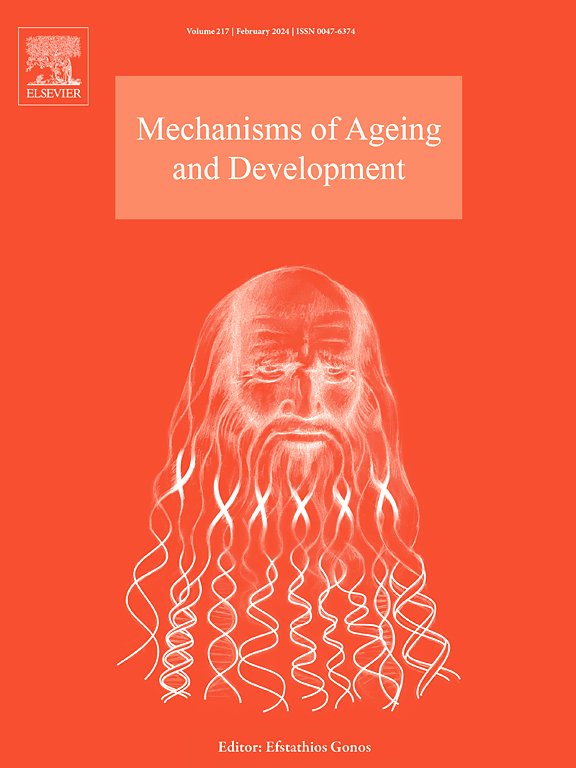Coconut Oil
How to submit an article:
- Registered users can submit any published journal article that has a unique DOI (Digital Object Identifier) name or link to Research Hub.
- For example, you can paste the full DOI link:
https://doi.org/10.1109/5.771073or just the DOI name:10.1109/5.771073into the field above and click submit. - The person who is first to submit a valid article to Research Hub will forever be credited for it, and every article submission earns you +6 Research Points.
Published research studies are articles that present the findings of original research that has undergone a peer-review process and has been made publicly available in scholarly journals, books or other media.
Evaluation of possible neuroprotective effects of virgin coconut oil on aluminum‐induced neurotoxicity in an in vitro Alzheimer's disease model
2023 Nov 21 Journal of Applied Toxicology Demirel G, Sanajou S, Yirün A, Çakir DA, Berkkan A, Baydar T, et al.
Experimental Study Alzheimer's DiseaseVirgin coconut oil shows potential therapeutic promise against Alzheimer's disease by reducing key markers and enhancing neurotransmitter parameters.

Coconut oil as a therapeutic treatment for alzheimer's disease: a review
2022 Mar Journal of Future Foods Sandupama P, Munasinghe D, Jayasinghe M
Review Article Coconut Oil Alzheimer's DiseaseCoconut oil has potential as a nutritional supplement for treating Alzheimer’s disease, due to its medium chain fatty acids and antioxidant properties.

Dietary prospects of coconut oil for the prevention and treatment of Alzheimer's disease (AD): A review of recent evidences
2021 Jun Trends in Food Science & Technology Ramesh SV, Krishnan V, Praveen S, Hebbar KB
Review Article Alzheimer's Disease Brain Health Coconut OilCoconut oil has potential therapeutic value in treating Alzheimer's disease by suppressing neuro-inflammation, reversing neurodegeneration, and inhibiting secretion of harmful peptides.
Effects of coconut oil on Alzheimer disease
2021 May International Journal of ADVANCED AND APPLIED SCIENCES Al-Matrafi TA,
The study suggests that coconut oil, particularly its MCTs, may be a natural and cost-effective treatment for AD by enhancing mitochondrial function, oxidation-reduction, and preventing amyloid-beta peptide aggregation. It also highlights potential benefits for other conditions like obesity, dyslipidemia, hypertension, chronic venous disease, and type II diabetes.
Review Article Coconut Oil Alzheimer's Disease MCTs
Comparative Study Between Virgin Coconut Oil and Omeprazole Drug on Ulcerative Colitis in Experimental Rats
2021 Feb 01 Journal of Food and Dairy Sciences Abd El Ghany M, Ramadan AH, Nagib R, EL-Azaly F
In rats with acetic acid-induced ulcerative colitis, the administration of virgin coconut oil demonstrated a significant improvement in final weight, weight gain, feed efficiency ratio, stomach organ weight, antioxidant enzymes (CAT, SOD, GSH, GSR, GPx, GST), and a significant reduction in oxidative stress markers (MDA, H2O2), inflammatory markers (CRP, IL-6, PG2), compared to the control group. These findings suggest that virgin coconut oil has a potential curative effect on acetic acid-induced ulcerative colitis in rats, emphasizing its potential as a therapeutic agent in the management of ulcerative colitis.
Experimental Study Animal Study Esomeprazole Coconut Oil Ulcerative ColitisResearch insights are moderated by the Research Hub team and offer an at-a-glance overview of interesting research findings.
2023 Journal of Applied Toxicology
Virgin coconut oil shows potential therapeutic promise against Alzheimer's disease by reducing key markers and enhancing neurotransmitter parameters.
Experimental Study Alzheimer's Disease
Evaluation of possible neuroprotective effects of virgin coconut oil on aluminum‐induced neurotoxicity in an in vitro Alzheimer's disease model
Demirel G, Sanajou S, Yirün A, Çakir DA, Berkkan A, Baydar T, et al.

2022 Journal of Future Foods
Coconut oil has potential as a nutritional supplement for treating Alzheimer’s disease, due to its medium chain fatty acids and antioxidant properties.
Review Article Alzheimer's Disease
Coconut oil as a therapeutic treatment for alzheimer's disease: a review
Sandupama P, Munasinghe D, Jayasinghe M

2021 Trends in Food Science & Technology
Coconut oil has potential therapeutic value in treating Alzheimer's disease by suppressing neuro-inflammation, reversing neurodegeneration, and inhibiting secretion of harmful peptides.
Review Article Alzheimer's Disease Brain Health
Dietary prospects of coconut oil for the prevention and treatment of Alzheimer's disease (AD): A review of recent evidences
Ramesh SV, Krishnan V, Praveen S, Hebbar KB
Review Articles
Review articles summarise and critically evaluate the current state of research on a specific topic or field by synthesising multiple primary research studies.

Coconut oil as a therapeutic treatment for alzheimer's disease: a review
2022 Mar Journal of Future Foods Sandupama P, Munasinghe D, Jayasinghe M
Review Article Coconut Oil Alzheimer's DiseaseCoconut oil has potential as a nutritional supplement for treating Alzheimer’s disease, due to its medium chain fatty acids and antioxidant properties.

Dietary prospects of coconut oil for the prevention and treatment of Alzheimer's disease (AD): A review of recent evidences
2021 Jun Trends in Food Science & Technology Ramesh SV, Krishnan V, Praveen S, Hebbar KB
Review Article Alzheimer's Disease Brain Health Coconut OilCoconut oil has potential therapeutic value in treating Alzheimer's disease by suppressing neuro-inflammation, reversing neurodegeneration, and inhibiting secretion of harmful peptides.
Effects of coconut oil on Alzheimer disease
2021 May International Journal of ADVANCED AND APPLIED SCIENCES Al-Matrafi TA,
The study suggests that coconut oil, particularly its MCTs, may be a natural and cost-effective treatment for AD by enhancing mitochondrial function, oxidation-reduction, and preventing amyloid-beta peptide aggregation. It also highlights potential benefits for other conditions like obesity, dyslipidemia, hypertension, chronic venous disease, and type II diabetes.
Review Article Coconut Oil Alzheimer's Disease MCTs
Potential of coconut oil and medium chain triglycerides in the prevention and treatment of Alzheimer’s disease
2020 Mar Mechanisms of Ageing and Development Chatterjee P, Fernando M, Fernando B, Dias CB, Shah T, Silva R, et al.
The review discusses how the metabolism of CO and MCFA might compensate for glucose hypometabolism observed in the AD brain. It highlights the neuroprotective properties of CO, including its antioxidant effects attributed to polyphenolic content. The evidence regarding the impact of CO on cognition, amyloid-β pathogenicity, inflammation, and oxidative stress in AD is presented. Additionally, the review addresses the influence of CO/MCFA on other chronic disorders that are risk factors for AD and identifies gaps in the existing literature on the potential use of CO/MCFA as a treatment for AD.
Review Article MCTs Coconut Oil Alzheimer's Disease
Health Effects of Coconut Oil—A Narrative Review of Current Evidence
2018 Nov 05 Journal of the American College of Nutrition Wallace TC
Limited but consistent evidence supports the topical use of coconut oil for the prevention and treatment of atopic dermatitis and "oil pulling" for preventing dental caries. Coconut oil products may also be beneficial in preventing hair damage due to protein loss during grooming processes and UV exposure. However, limited evidence does not support the use of coconut oil for the prevention or treatment of Alzheimer’s disease, bone loss, or glycemic control. Larger clinical intervention studies are warranted for weight loss and cardiovascular disease. Refined copra oil has a lesser impact on total and LDL cholesterol compared to butter fat but not cis unsaturated vegetable oils. Many claims about coconut oil products are based on animal and/or in vitro studies or studies of purified medium-chain fatty acids, highlighting the need for more human clinical and observational studies.
Review Article Coconut OilClinical Trials
Clinical trials are research studies that involve people and are conducted to evaluate the safety and efficacy of new treatments or interventions, such as drugs, medical devices, or behavioural therapies.
Study Protocols
Published study protocols are detailed plans that outline the objectives, methodology, statistical analyses, and organisation of a research study that have been made publicly available for others to review and use as a reference.
Presentation Slides

Experimental Study
Virgin coconut oil shows potential therapeutic promise against Alzheimer's disease by reducing key markers and enhancing neurotransmitter parameters.
Demirel G, Sanajou S, Yirün A, Çakir DA, Berkkan A, Baydar T, Erkekoğlu P

Review Article
Coconut oil has potential as a nutritional supplement for treating Alzheimer’s disease, due to its medium chain fatty acids and antioxidant properties.
Sandupama P, Munasinghe D, Jayasinghe M

Review Article
Coconut oil has potential therapeutic value in treating Alzheimer's disease by suppressing neuro-inflammation, reversing neurodegeneration, and inhibiting secretion of harmful peptides.
Ramesh SV, Krishnan V, Praveen S, Hebbar KB
Executive Summary
Write an executive summary in the form of a blog article on the topic of "Research into Chinese medicine treatment for Coconut Oil" summarising the research below and using language that can be easily understood by patients and avoiding medical jargon using a professional and caring tone of voice.
Write an executive summary in the form of a blog article on the topic of "Researched Chinese medicine treatments for Coconut Oil" summarising the research below in an objective and easy to understand way, and using language that can be easily understood by patients. Group the article into Chinese medicine treatments first, followed by nutrition and other treatments. Avoid using medical jargon and use a professional and caring tone of voice.
Write me a concise but easy to understand executive summary on the topic of "Chinese medicine treatments for Coconut Oil" based on the following research that I will give you. Your summary should be 2 paragraphs long in Australian English spelling and include references to the studies.
A Experimental Study published in 2023 in the journal Journal of Applied Toxicology found that Virgin coconut oil shows potential therapeutic promise against Alzheimer's disease by reducing key markers and enhancing neurotransmitter parameters. In this study, the SH-SY5Y cell lines were cultured in its regular growth medium which was then differentiated by reducing its fetal bovine serum content and adding retinoic acid. Further, brain-derived neurotrophic factor was added in unison with retinoic acid, completing the differentiation process by the seventh day. The study groups comprised of a control group, groups that received virgin coconut oil, Aluminum, both or neither, an Alzheimer model group, and a group replicating the Alzheimer model exposed to Aluminum and virgin coconut oil. The measurable aspects in this study included specific indicators of Alzheimer's disease like hyperphosphorylated Tau protein, amyloid beta 1-40 peptide, and amyloid precursor protein, oxidative stress parameters, and neurotransmitter-related parameters. In the results, it was revealed that virgin coconut oil was successful in reducing levels of amyloid beta and hyperphosphorylated Tau protein in the groups. This composition also seemed to decrease oxidative stress levels associated with Alzheimer's disease, delivering improvement in neurotransmitter parameters, which supports the hypothesis that virgin coconut oil can be therapeutic against this progressive neurological disorder.
A Review Article published in 2022 in the journal Journal of Future Foods found that Coconut oil has potential as a nutritional supplement for treating Alzheimer’s disease, due to its medium chain fatty acids and antioxidant properties. The study examined the unique chemical composition of coconut oil that is enriched with medium chain fatty acids, unlike long-chain fatty acids. This distinction matters because these medium chain fatty acids have a specific digestion and metabolism pathway—they bypass the lymphatic system and go straight to the liver through the portal vein. This unique attribute in absorption and metabolism allows these fats to readily form ketone bodies, which are an efficient energy source for brains, especially those experiencing cognitive impairments like Alzheimer's disease. As for the discussion of the results, the findings showed that medium-chain triglycerides in coconut oil get metabolized and absorbed to mitigate the severity of certain physiological risk factors—elevated LDL levels, hypertension, Type 2 diabetes, obesity, and insulin resistance—all risk factors that contribute to the prevalence and incidence of Alzheimer's disease. Additionally, coconut oil contains many polyphenolic compounds that serve as antioxidants, combating oxidative stress and inflammation—in turn, potentially downregulating the etiology of Alzheimer's disease. The antioxidant capacity, however, can vary depending on the processing conditions used in extraction techniques of coconut oil.
A Review Article published in 2021 in the journal Trends in Food Science & Technology found that Coconut oil has potential therapeutic value in treating Alzheimer's disease by suppressing neuro-inflammation, reversing neurodegeneration, and inhibiting secretion of harmful peptides. The methodology of this study hinges on investigating the impact of coconut oil-derived medium chain fatty acids (MCFAs) on brain glucose metabolism, which is linked to Alzheimer's Disease (AD). These MCFAs rapidly metabolize into ketone bodies, possibly providing alternative energy for cerebral tissue. This research evaluates the recent findings on the role of coconut oil in mitigating AD symptoms, including its dietary effects on reducing neuro-inflammation, reversing neurodegenerative processes, and inhibiting the secretion of amyloid β peptides, which contribute to AD. The results of the investigation reveal a promising correlation between coconut oil and the amelioration of AD symptoms. The effectiveness of coconut oil is believed to be due to its ability in enhancing cell survival pathways, suppressing neuro-inflammation, and reversing neurodegeneration. Coconut oil also proves useful in preventing the secretion of harmful amyloid β peptides, as seen in animal models and human clinical trials. These multi-pronged biochemical effects underline the immense therapeutic potential of coconut oil in treating AD.
Moderation Tools
Topic
Sign In
Users not signed in are limited to viewing the 5 most recent items of content.